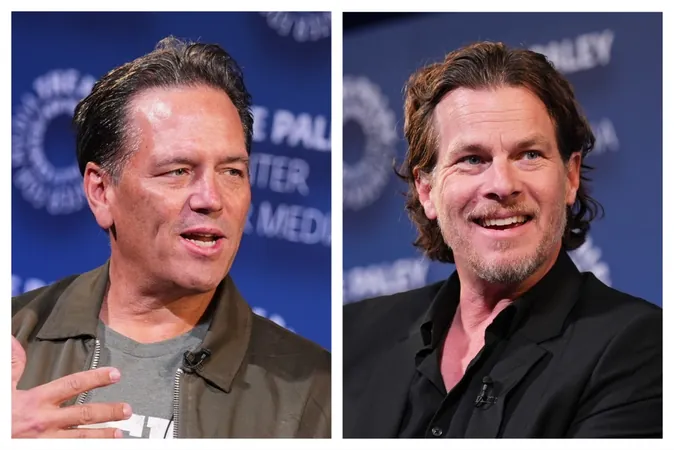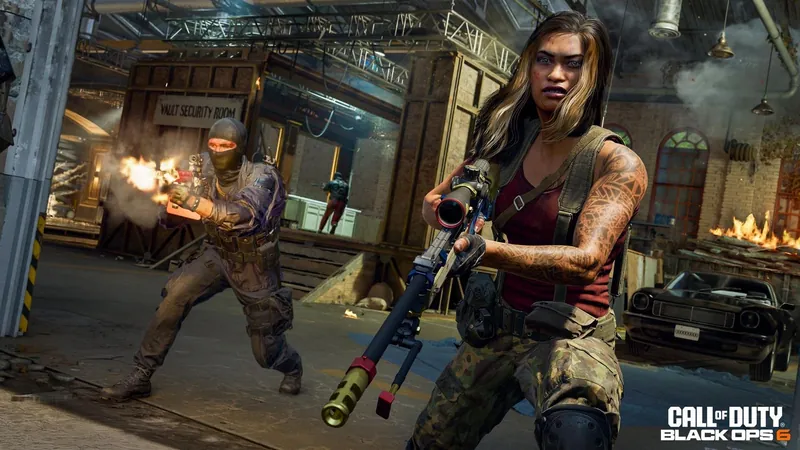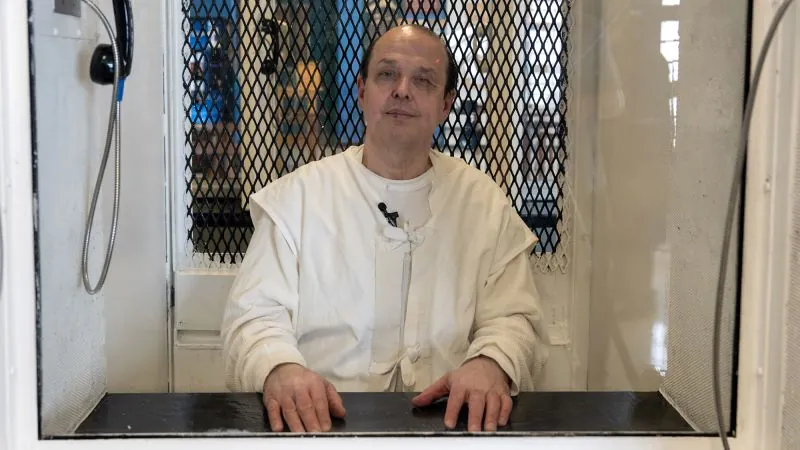
The 'Fallout' Phenomenon: A Game-Changer for Video Game Adaptations in Hollywood
2024-11-15
Author: Emma
The Fallout Phenomenon: A Game-Changer for Video Game Adaptations in Hollywood
The immensely popular video game franchise “Fallout” has successfully transitioned into the world of television with its new Amazon Prime Video series, and fans couldn't be happier. Unlike many adaptations that come under corporate pressure, Microsoft’s Xbox division was under no obligation to create a show, allowing for a more organic and authentic development process. This approach is one of the main reasons the series has resonated well with both viewers and long-time fans.
During a recent discussion at the Paley Center for Media’s International Council Summit in New York, Phil Spencer, Microsoft Gaming's CEO, and Jonah Nolan, the showrunner of the “Fallout” series, explored the long road to bringing the beloved franchise to life for the small screen. Both emphasized the growing collaboration between gaming intellectual properties (IPs) and other media forms, signaling a shift in Hollywood's approach to adaptations.
Spencer highlighted the importance of trust and passion, particularly noting how Nolan's enthusiasm for the franchise reassured both him and Todd Howard, the game’s creator. Spencer stated, “We don’t have to do a television show or a movie for any of the individual properties... it better be something that we do with someone we trust.” The successful transition has seen the show not only attract viewers, but it has also expanded the franchise's reach, garnering a staggering 100 million viewers and 16 Emmy nominations, including best drama series.
Nolan, known for his work on acclaimed series such as HBO's "Westworld," also detailed the unique challenges of adapting a game like “Fallout,” which is rich in narrative intricacies. He likened the adaptation process to working on the Batman films with his brother Christopher Nolan, highlighting the creative freedom and exploration of a familiar yet complex world. “It’s kind of wide open... each game in the franchise had a different setting, a different story, a different set of characters, and they all connected to each other,” he remarked.
Collaboration was key during the development process. Nolan pursued collaboration with Howard for years before they finally connected. Their mutual respect and understanding led to a shared vision for the series that has paid off in dividends, both critically and commercially.
In today’s entertainment landscape, the connection between creators and the fanbase is stronger than ever. Spencer remarked on the importance of actively engaging with fans and allowing them to participate in the creative process. “If you’re really successful, you will have more people outside of your own creative process that love the franchises that you build,” he mentioned, highlighting a growing trend where game creators and fans alike can influence adaptations.
As for the future, Spencer expressed interest in possibly revisiting other Xbox franchises like “Halo,” which previously saw a mixed response from audiences during its Showtime adaptation. He recognized that developing strong partnerships in Hollywood is essential for adapting video games to film and television, paving the way for more rich narratives to come.
The success of “Fallout” exemplifies how Hollywood can effectively embrace video game adaptations, breaking the mold of traditional storytelling. With a balance of respect for the source material and a willingness to innovate, the future looks bright for this genre as it continues to evolve, and fans are excited to see what comes next.
Is this the dawn of a new era for video game adaptations? The answer may lie in how studios choose to partner with creators and fans alike. Stay tuned for the next big adaptation—you won't want to miss it!









 Brasil (PT)
Brasil (PT)
 Canada (EN)
Canada (EN)
 Chile (ES)
Chile (ES)
 España (ES)
España (ES)
 France (FR)
France (FR)
 Hong Kong (EN)
Hong Kong (EN)
 Italia (IT)
Italia (IT)
 日本 (JA)
日本 (JA)
 Magyarország (HU)
Magyarország (HU)
 Norge (NO)
Norge (NO)
 Polska (PL)
Polska (PL)
 Schweiz (DE)
Schweiz (DE)
 Singapore (EN)
Singapore (EN)
 Sverige (SV)
Sverige (SV)
 Suomi (FI)
Suomi (FI)
 Türkiye (TR)
Türkiye (TR)